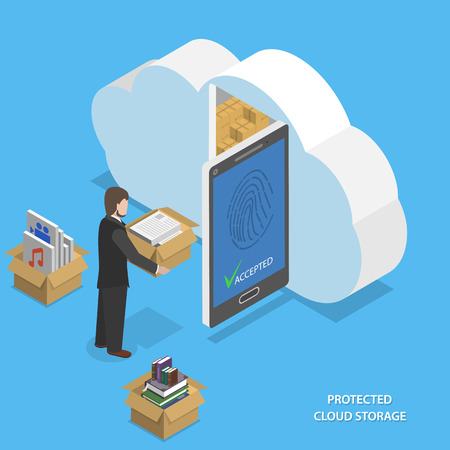Do You Have A Brexit Plan? You Should.
 And so it begins. Article 50 was triggered by the Prime Minister and the two years of negotiations with the EU have begun, albeit unceremoniously with early jabs from either side on where their respective red lines are and even a little early sabre rattling concerning historical disputes such as the future of Gibraltar.
And so it begins. Article 50 was triggered by the Prime Minister and the two years of negotiations with the EU have begun, albeit unceremoniously with early jabs from either side on where their respective red lines are and even a little early sabre rattling concerning historical disputes such as the future of Gibraltar.
The PM has even said that “No deal is better than a bad deal”. We wonder how our clients feel about that? And of course that leads us to the question about what plans our clients may start putting in place? How they have faired since the decision to leave was originally taken?
Little impact on small businesses so far
As far as we can tell and also from the results of numerous surveys taken last year, including one from Company Check, over 50% of small businesses have said that there’s been no impact on them, 30% had reported a negative impact largely due to the uncertainty Brexit has caused, and 15% said they have experienced a positive effect.
Another report from Opus Energy claims that many SMEs are unfettered by the Brexit result, with 29% of the 500 SMEs it surveyed reporting they were more confident about their business outlook than they were before the decision to leave was made. Only 20% felt less confident. These results do reflect the great British spirit we often talk about: “From adversity comes opportunity”.
Whether you are a Brexiteer or a Remainer, the die is cast and it’s time to get on with business. We believe that Brexit should be viewed as a form of ‘Creative Disruption’, seen as not just a significant challenge for many companies, but also a sizeable opportunity too. The UK is still the world’s fifth or sixth biggest economy, depending on how you look at the value of the pound. We are a strong nation with a limitless desire to succeed and it would be foolish to believe that the UK need be entirely dependent on EU trade agreements. Can we expect pain? No doubt. But often, businesses that are very comfortable in what they are doing - “making hay while the sun shines”, as the saying goes, can become complacent and end up an industry laggard rather than a leader.
Start Planning For Change
So, for many businesses, maybe this is a wake-up call. Start planning for change, because ready or not, it is coming.
How do you plan? The first potential impact is staff. A lot of companies have become used to employing people from other countries in the EU. We have taken for granted the Italian Chefs, the Romanian fruit and veg pickers and the Polish builders. But, in recent months over 50,000 EU nationals have left the UK. Is this the beginning of a ground swell of people voting with their feet? It’s too early to say, especially there are many EU nationals in non-seasonal or cyclic work have invested personally in this country, much in the same was as those Brits who now live and work in other European countries.
Have you spoken to your EU staff? Have some open discussions and see how they feel. Many may be permanent resident holders and not so inclined to move.
What plans can you put in place to offset the potential loss of staff with training for local employees instead? Consider new apprentice schemes for instance.
Are you overly reliant on the EU for raw materials? Are there alternatives you could explore?
Manufacturers in the UK are some of the businesses that are most optimistic, with over 73% reporting as such in a report by Albion Ventures. IT and Telecoms are next at 65%, with retail SME at 53%. A weaker pound has it’s upsides for these companies, as it makes our products cheap in comparison, as long as labour and raw materials are sourced competitively.
Seize the day while you still can and get planning
So, our advice is to look very closely at your business operations and it potential vulnerabilities. Conduct what the banking world calls ‘stress tests’, by analysing ‘what if’ scenarios and exploring the potential for new, non-EU, partnerships.
You have plenty of time, two years in fact.
Carpe Diem!
Why so many SMEs are switching to Cloud Accounting

In this day and age, every business relies on some kind of technology to help with productivity. For example, we use a computer instead of a typewriter, we have a broadband connection as opposed to a dial-up. In this field of accounting, more and more SMEs are starting to move into cloud-based accounting systems like Xero. At TaxAgility, we have been using cloud accounting for some time now, and we would like to share the benefits of going to the cloud.
It may be beneficial to explain that cloud accounting refers to accounting software that is hosted on remote servers, and where you record transactions over the internet. This practice means you don’t have to install the software in your computer, or own a dedicated server.
Benefits of the cloud
Do work on the go
By using cloud accounting, you are no longer tied to the particular computer in your office that runs the accounting software. You can now easily access your accounts from anywhere - in a coffee shop, at home, in another country. As long as you have internet access you can access the cloud.
Moreover, cloud accounting software is device dependent. You can access your account from any device - desktop, laptop, tablet and smartphone. This means even if you just take your smartphone on a holiday, you can still be on top of things in the event when an urgent accounting request happens.
Account information is kept safe
The cloud always backs up the work you’ve done, keeping it safe from loss. If there’s a problem or data was accidentally deleted, you don’t have to fret as it can be easily recovered. In business, time is money, keeping your data safe means you don’t need to waste time trying to recover any lost data.
Best of all, the cloud protects your data from cyber attacks or break-ins. This means you don’t have to worry about your accounting data being stolen. Think about the negative effects if your business’ financial information were stolen - the risks of someone stealing from you or using the data against you - each risk has plenty of undesirable and daunting consequences. Cloud accounting can significantly lower your risk and exposure.
Colleagues can collaborate on it
Do you have an accountant that manages the bookkeeping and finances for your business? Sometimes that can feel like you’ve got a bit less control over the business. By using cloud accounting, you can always keep a watchful eye look alongside your accountant.
For larger organisations with satellite offices in other countries, cloud accounting means colleagues from across the globe can access the data in real time. There isn’t a need to print out and send the spreadsheet via another method to colleagues in another country. Cloud accounting saves time and effort.
At TaxAgility, we are a team of Accountants, highly experienced and knowledgeable in all accounting needs. If you have yet used cloud accounting, perhaps it is time to start now. We can help to advice and guide you along the way.
Are You Aware of the New IR35 Update?
 IR35: the change is coming
IR35: the change is coming
A week ago, a firm which has active contracts with the Ministry of Defence became the first private company to ban workers who are limited companies. It simply told its hundreds of “Ltd” workers it has on-site that they must switch to an umbrella company or quit.
Traditionally, a contractor, or a self-employed person, usually chooses to set up a Limited Company or work through an Umbrella Company (you can click here to read a page which we have put up summarising the pros and cons of limited vs umbrella company). Most contractors choose to set-up a limited company because this is widely considered to be the most tax efficient method to maximise your take-home pay. Why? Because a limited company allows contractors to claim various expenses and paying lower taxes by taking a dividend instead of a full salary.
So the government is bringing in a new legislation which will ensure that contractors who are doing the same job as an employed worker are not getting a higher take-home pay simply because they work through a limited company. In addition to that, the government is also making changes to umbrella companies - one such change is contractors working through an umbrella company cannot claim travel and subsistence expenses. The bottom line is: the new IR35 legislation will ensure that people who benefit from tax savings are honest contractors, while moving those who should be ‘employed’ back to paying the correct PAYE payments.
Public Sector
It’s important to point out that this legislation will only affect public sector clients and placements. Private sectors are not affected (yet).
From 6 April onwards, every public sector department is required to go over their need for contractors - reviewing the contracting roles and seeing if the roles could be replaced with standard employees. Public sector departments also need to review their off-payroll contractors making sure they work through an umbrella company or on PAYE.
Another point to note is: IR35 status for Public Sector Contracting will be determined by the client, not the contractor.
As a result of these changes, we anticipate that most public sector contractors are likely to go on an agency’s PAYE scheme instead of going to an umbrella company, as there is not much difference between the take home pay through the agency’s PAYE vs an umbrella company.
Still confused? You’re not alone, because tax is a complex subject. The good news is, our team of London Accountants at TaxAgility is here to help. We will first seek to understand your situation, then see how the new legislation will affect you. This is why we always offer the first consultation free of charge. Call us today at 020 8780 2349 or complete the enquiry form and we will call you back.
Are You Aware of These Tax Changes? Part II

Last week we highlighted an upcoming change on Supplier Payments and how companies will be required to publish their payment policy and practice. This week, we will continue with this theme and look into two upcoming changes: Salary Sacrifice and New Vehicle Tax Rates.
Salary Sacrifice
Salary Sacrifice is an arrangement between an employer and an employee which reduces the employee’s entitlement to cash pay, but the sacrifice of cash entitlement is in return made in some form of non-cash benefit.
The most popular benefit claimed by staff through such arrangements are pension contributions. Over the years, benefits like childcare voucher, bicycle schemes, gym membership and mobile phones have become common. In recent years, even white goods (such as tablets and TVs) are claimed through such arrangements. What it means in practice is: employees save on tax by paying for these benefits before tax is taken, while employers save on paying National Insurance on the sacrificed wages.
On the surface, salary sacrifice arrangements are beneficial. But as companies begin to pay benefits using such arrangements to avoid national insurance payments, the government will close the loophole and gain more taxes.
From April 2017 onwards, benefits such as mobile phones, gym memberships and white goods will no longer be eligible under such arrangements. However, childcare voucher and bicycle schemes will remain.
New Vehicle Tax Rates
On the government’s website, this sounds rather straight forward – on or after 1 April, what you pay for the first 12 months is based on CO2 emissions. Then after the first year, the amount of tax you pay depends on the type of vehicle. However, if you consider the amount of tax you pay currently (prior to 1 April) and compare it to buying the same car on or after 1 April, you may be surprised to learn that it is beneficial to wait. A couple weeks ago, the consumer team at Auto Express compared the tax rates for eight different types of car, from superminis to SUVs. What they found was, buyers of smaller, more economical cars will face the biggest tax hike after 1 April, compare to what they are paying now. The result caught many by surprise. If you are considering buying a new car, check out their site to find out more.
Tax is a complex subject. Often there isn’t a straight answer, this is where we can assist you. We are chartered tax accountants focusing on businesses across London. We are here to explain and guide you through the tax system. Call us at 020 8780 2349 today. We offer the first consultation for free so you and I can discuss your situation at ease.
Are You Aware of This Tax Update?
 The UK tax system is very complex, often new regulations come into effect but most businesses aren’t aware of them. This is an area which we can definitely assist our clients – explaining and guiding them through the complex and ever-changing tax system. Today, we will talk about Supplier Payments which may affect you.
The UK tax system is very complex, often new regulations come into effect but most businesses aren’t aware of them. This is an area which we can definitely assist our clients – explaining and guiding them through the complex and ever-changing tax system. Today, we will talk about Supplier Payments which may affect you.
The news headlines “Tesco knowingly delayed payments to suppliers” were prominent last year. The good news is, techniques used by major buyers in large corporations and other significant entities to squeeze the maximum amount from relationships with suppliers are soon to be held up to wider scrutiny. A new 'Duty to report on Performance and Payment Practices', becoming law in April 2017, will require larger organisations to report on their payment practices every six months.
Companies who fall within the Companies Act 2006 definition of Medium companies for financial reporting purposes and LLPs (Limited Liability Partnerships) as defined by the 2000 Act of a similar scale, will be impacted by the new guidance issued in January.
Overall, this update is welcomed by smaller suppliers; though some major companies say this will add an unnecessary burden to their existing payment process.
For the interest of our readers, here are a few particulars that should be noted regarding the new requirements:
- All results reported will be available for the public to view online.
- The figures reported will be backward looking, referring to the previous year's financial results. Also, reporting will need to be signed off and certified by a company director every six months (designated member for LLP's).
- Information is required to be made available within 30 days of the end of a reporting period.
- Metrics to be reported on include the average payment days to suppliers, and amounts due to suppliers of 30-60 days and in excess of 60 days at the date of reporting.
- Organisations with a Group structure will have to report metrics at an individual company level, but overseas registered companies owned by the company or Group are not required to be reported on.
- Breeches of reporting requirements will be considered a criminal offence.
- Certain other narrative regarding the company’s payment policy will need to be reported. This includes the company's policy with regard to supplier disputes, and the company's maximum payment terms under their contractual terms with suppliers.
These new requirements will impact certain companies more than others. Apart from big supermarkets which we hear about in the news, the building sector can also be notorious for deducting retention deposits from work completed, and these amounts are often not released by the buyer until months after work has been complete. So our word of advice to our clients is always, ‘be clear about the payment arrangements’.
If you would like some advice on the UK tax system or on this particular issue, contact our Tax Advice service today. You can call us at 020 8780 2349 or complete the enquiry form and we will call you right back.
Tax Saving Tip for the Self-Employed, Part II
 Last week we received good feedback for our article on reducing the tax bill for contractors and self-employed individuals through tax free allowance and not paying your National Insurance once you have reached the retirement age. This is why we want to continue the theme this week and explore other legal and honest ways to reduce your tax bill.
Last week we received good feedback for our article on reducing the tax bill for contractors and self-employed individuals through tax free allowance and not paying your National Insurance once you have reached the retirement age. This is why we want to continue the theme this week and explore other legal and honest ways to reduce your tax bill.
Home expenses
Many contractors and self-employed entrepreneurs start their business from home. Naturally, you are allowed to include a certain proportion of home expenses (electricity, gas, and a percentage of your mortgage or rental cost) as a genuine business expense. There are no hard and fast rules regarding what you can claim as a reasonable deduction as everyone’s arrangements are different. However, the key is to ensure a reasonable argument can be made for the basis for any calculations. For example, it is rather foolish to claim a deduction for 2 to 3 Starbucks coffees per day while you also claim an allowance for being at and working from home 5 to 6 days per week.
Smaller Allowances Add Up
There are many smaller allowances which go unclaimed but they can add up and benefit your overall tax bill. Two examples are deductions for eye test and the approved schemes for using a bicycle as your mode of transport. Another one is claiming millage when you use your car, motorcycle or bicycle on company business. 45p, 25p and 20p are the maximum rates per mile that companies can pay or business owners can recoup without tax being paid for the use of one's own car, motorcycle or bicycle. One exception to this is that National Insurance arises if you exceed a certain number of annual business miles per annum, but realistically this will not be reached unless you are a full time sales rep on the road.
It is also important to note that the Tax Authorities can be particularly picky regarding the distinction between business and personal millage when using your own vehicle for both. It is therefore advisable to keep a mileage log that records of all business journeys taken, then they can be clearly differentiated from miles driven for personal purposes.
At TaxAgility, we always strive to give the best tax advice that is unique to your circumstances. This is why we always offer our first consultation for free to allow us to learn about your business and your personal financial circumstances, so we can create a tax accounting solution that is as unique as you.
Call us now at 020 8780 2349 or complete the enquiry form and we will call you back.
Tax Saving Tip for the Self-Employed
 As chartered tax accountants, tax is a topic which we discuss with our clients on a daily basis. In this day and age, almost all of our clients know they can go to the Internet for tax advice, but often what they get is generic information. Case in point: there are plenty of materials on the Internet advising how a self-employed person can reduce their tax bill and most of them usually begins with, “check your tax code…” – but hardly anyone mentions tax free allowances or even how pensioners can be exempt from National Insurance when they become self-employed. This is why we’ve been motivated to write this post, with the aim of highlighting these often overlooked areas:
As chartered tax accountants, tax is a topic which we discuss with our clients on a daily basis. In this day and age, almost all of our clients know they can go to the Internet for tax advice, but often what they get is generic information. Case in point: there are plenty of materials on the Internet advising how a self-employed person can reduce their tax bill and most of them usually begins with, “check your tax code…” – but hardly anyone mentions tax free allowances or even how pensioners can be exempt from National Insurance when they become self-employed. This is why we’ve been motivated to write this post, with the aim of highlighting these often overlooked areas:
Tax Free Allowance
A married couple have a tax allowance each and some arrangements can maximise the total benefit of this. Let’s take a common scenario where one spouse is an entrepreneur and the other is staying at home to bring up the children. The stay at home partner could be allocated tasks from their husband or wife’s workload, and be paid from the entrepreneur's business for doing so. This could provide the stay at home partner with an income that is effectively tax free if the income is less than their annual Tax Free Allowance. Similarly, the Entrepreneur can use the payment as a deduction from their taxable income, possibly reducing their tax bill too. This win-win situation is legal, but often overlooked by entrepreneurs and small business owners.
Self-Employed After Pension
We have seen many pensioners going on to set-up a small business which helps to keep them active, mentally and physically. If you fall into this category, i.e. you’re still working beyond the Government’s official pension age, you should cancel any National Insurance payments to HMRC. Continuing to pay into the scheme will not make any difference to the state pension that you are entitled to. However, you do need to make a formal application to HRMC about this. The UK government has been making radical changes to the state pension ages. To find out your current pension age, click here. And, in 2020, the state pension age is to be increased to 66 for both men and women.
At TaxAgility, we believe in delivering a highly-personalised tax service to our clients. This is why we always offer our first consultation for free to allow us to learn about your business and your personal financial circumstances, so we can create a tax accounting solution that is as unique as you.
Call us now at 020 8780 2349 or complete the enquiry form and we will call you back.
7 Key Steps to Growing A Business Online (Part 2)
 Last week, we discussed if passion could translate into a good business, the processes of defining what you want to sell and using the Keyword Tool to do research. Now we shall cover the other four points:
Last week, we discussed if passion could translate into a good business, the processes of defining what you want to sell and using the Keyword Tool to do research. Now we shall cover the other four points:
- Red Ocean or Blue Ocean
This is where reality sets in. Through your research you may be excited to learn that few people or companies offer what you plan to offer. This could be great news, as it may represent a wholly unique opportunity - a ‘blue ocean’. Or, as is highly likely, you’ll find a lot of competitive activity in the space - a ‘red ocean’.
The distinction between red and blue oceans comes down to one thing - competition. A red ocean simply represents a market where competition results in ‘metaphorical blood in the water’. It’s a market that may be price sensitive with little margin to be made, or one where larger company dominate - sharks.
On the other hand, a blue ocean represents a space where there is little competition and you are free to explore and test your ideas. Beware though, blue oceans also have their dangers, rather like being cast adrift with no land in sight (like your ideas are so obscure that they don’t create a demand). Blue oceans require a wholly different strategy, because you are essentially creating your own market or building on a ‘nascent’ need - a need that people are only just becoming aware of. These of course, are the most exciting and potentially the most rewarding and is why the research is so important.
The outcome of this exercise will bring in to sharp focus the job ahead.
- Develop a marketing plan
At the risk of being clichéd, we’ll use a cliché here: “Failing to plan is planning to fail”. In the online world this is particularly true because ideas and business can be destroyed very quickly if you haven't thought through how you plan to reach your market audience and fulfil their need.
Basically, you need a marketing plan. It’s a painful but worthy exercise. Again, whole books are dedicated to this, so we’ll be brief here. Your ‘online’ marketing plan should at a minimum accomplish the following:
- Identify your audience, how you can reach them (email, search engines, auction sites, blogs, Youtube, social media, etc) and what ‘information’ they will respond too.
- Identify your competitors, if there are any, learn from them. Try to figure out how they became successful and what they did to achieve it.
- Outline your digital marketing strategy - what you need to build to reach your online audience. Examples include a website, a social media presence (and which ones).
- Identify the type and form of content you need to create to appeal to your audience and engage them.
- Outline how do you plan to advertise and what budget you have. Many options include ‘pay-per-click’ and ‘display advertising’ with Google Adwords Facebook, Twitter, LinkedIn, Instagram, among others. You don’t always need to pay for advertising though; creating awareness through social media and other people’s blogs of valuable content on your own venues, can achieve the same end result.
- Set some KPI’s (key performance indicators), such as: number of website visitors, response rate to emails, conversion rates (this might be actual sales).
- Learn how to analyse your performance and the actions of your audience
If you are using a website or social media, each has its own tools to analyse who interacts with you on-line. In the case of websites, Google analytics provides a wealth of data as to how many people and how they interact with your site; and it’s free. Others, such as SEMRush, are paid tools, but allow you to track your entire online performance - from keywords to social activity.
Using data in this way will help you adjust to the feedback implicit in how people use your website or social venue. It also allows you to monitor the performance of your advertising campaign. If you are an advanced user, you can also conduct tests to determine which ads perform better and adjust accordingly.
If there’s one aspect of an online business that sets the winners apart from the losers, it’s the ability to analyse and interpret the wealth of data at your disposal through these tools - it can help you beat your competition.
- Review regularly and don't be afraid to change
Change is a constant in the world of online business. Online customers are fickle, technologies are changing all the time, as are search engines and the way people use social media. Adapt quickly by being aware.
Your end game maybe to sell product or services, but your goal should be to attract and engage your target audience. To do that you need to create a unique experience around what you have to offer. This is done through great content and content marketing. People share, and you want them to share your experience as this drives brand awareness and customer loyalty.
Best of luck to your online business.
31 January - To file a tax return or not?
 The deadline to file your online self-assessment tax returns is almost upon us. This year we probably won’t see an ad from HMRC reminding us, after last year’s faux pas when a Channel 4 investigation revealed that HMRC had spent £27k for adverts placed on Facebook to advise people on their tax payments but only received £4k in tax from the social media giant itself.
The deadline to file your online self-assessment tax returns is almost upon us. This year we probably won’t see an ad from HMRC reminding us, after last year’s faux pas when a Channel 4 investigation revealed that HMRC had spent £27k for adverts placed on Facebook to advise people on their tax payments but only received £4k in tax from the social media giant itself.
(If you have seen an HRMC ad recently featuring a big purple blob walking in the park, that ad is for Pension Auto Enrolment, not Tax Returns.)
Back to the question: do you have to file a Self-Assessment tax return by 31st January? Before answering this question, it is worth explaining that most people don’t have to file one. Also, the January deadline is only for electronic returns, the deadline for paper returns was October 31st.
In the UK, the basis of the tax system is “taxed at source”, meaning taxes are taken out of salary, literally ‘at source’. If you are working for a company, you can see from your monthly pay slip that your employer has deducted a certain amount from your gross pay to HMRC. This system ensures that working people are always up to date with their taxes.
Yet for working employees, there is still a possibility that you need to file a Self-Assessment Tax Return. Self-Assessment is merely a mechanism where Taxes due are calculated. It isn’t a tax collection mechanism in itself. A whistle-stop tour of circumstances where you possibly need to submit a Self-Assessment return is when you have:
- Interest income
- Rental income
- Foreign income
- Income from a Trust or Settlement
- Income from savings or investment is £10k or more (note: this is the income threshold, not that you have savings of £10k or more. Also, we have distinguished interest income from savings/investment income which can come from Directors loans, loans to third parties or Fintech peer-to-peer loans.)
- Child benefit if you are earning £50k or more
- If you have disposed of any assets valued in excess of £44k that would attract Capital Gains Tax or that would have resulted in CGT Tax losses (it’s important to record these as they can be used to set against future gains)
There are many other scenarios. In fact, you may be filling a tax return to claim money back from HMRC for donations, private pension contributions, and work expenses over £2.5k. It is best to check with us if you are unsure about your tax returns. Apart from Personal Income Tax, we also help our individual clients in their Trusts and Estates, Inheritance Tax, and Capital Gains Tax. Visit our Personal Tax Planning page to find out more.
Contact TaxAgility today on 020 8780 2349 or get in touch with us via our contact page to arrange a complimentary, no obligation meeting.
Small Business: Make Cyber Security a Priority
 The threat of cyberattacks is clear and present for small businesses, as most don’t have a dedicated IT department looking after cyber security. Therefore, it is always good for small business owners and entrepreneurs to attend conferences and seminars and pick up a few tips. In the past few months, we learnt a few useful tips which we thought may be beneficial to you as well.
The threat of cyberattacks is clear and present for small businesses, as most don’t have a dedicated IT department looking after cyber security. Therefore, it is always good for small business owners and entrepreneurs to attend conferences and seminars and pick up a few tips. In the past few months, we learnt a few useful tips which we thought may be beneficial to you as well.
Use a Virtual Private Network
Commonly known as VPN, it allows you to connect to the web with an encrypted connection, preventing other parties seeing your online data and communication, including your ISP. Many businesses use a VPN connection when they are working from a Wi-Fi hotspot in a public place, in fact, this is absolutely essential these days. You can use VPN from your home and in your office too. As today most of owners conduct their businesses over mobile devices, you could download an application like Rocket VPN, which is a free app on Google Play and iOS.
Update your software
Virus protection software, firewalls, and operating system should be updated regularly. If you are concerned about data like your payroll information, our dedicated team for Payroll Services for Small Business will take care of your payroll activity for you.
Use the cloud if you can
Cloud applications can typically keep your data safe. Do remember to use a strong and unique password for each application.
Stay vigilant
Don’t open emails and download suspected files - if it looks unusual, it’s probably a phishing or malware email. This will go a long way to keep your company safe.
Have a plan
Back-up your important data routinely and have a plan to ensure that your operations can still run should an unfortunate attack happen and negatively impact your operations.
Keep abreast
It is always useful to get the latest the news and information from the National Fraud and Cyber Crime Reporting Centre.
Attend a course
There are quite a few courses available across London. If you are free for 3 hours a week for 8 weeks, more proactive approach may be to consider this free course titled Introduction to cyber security run by the Open University.
Let us all work together to keep our business safe from cyberattacks.


